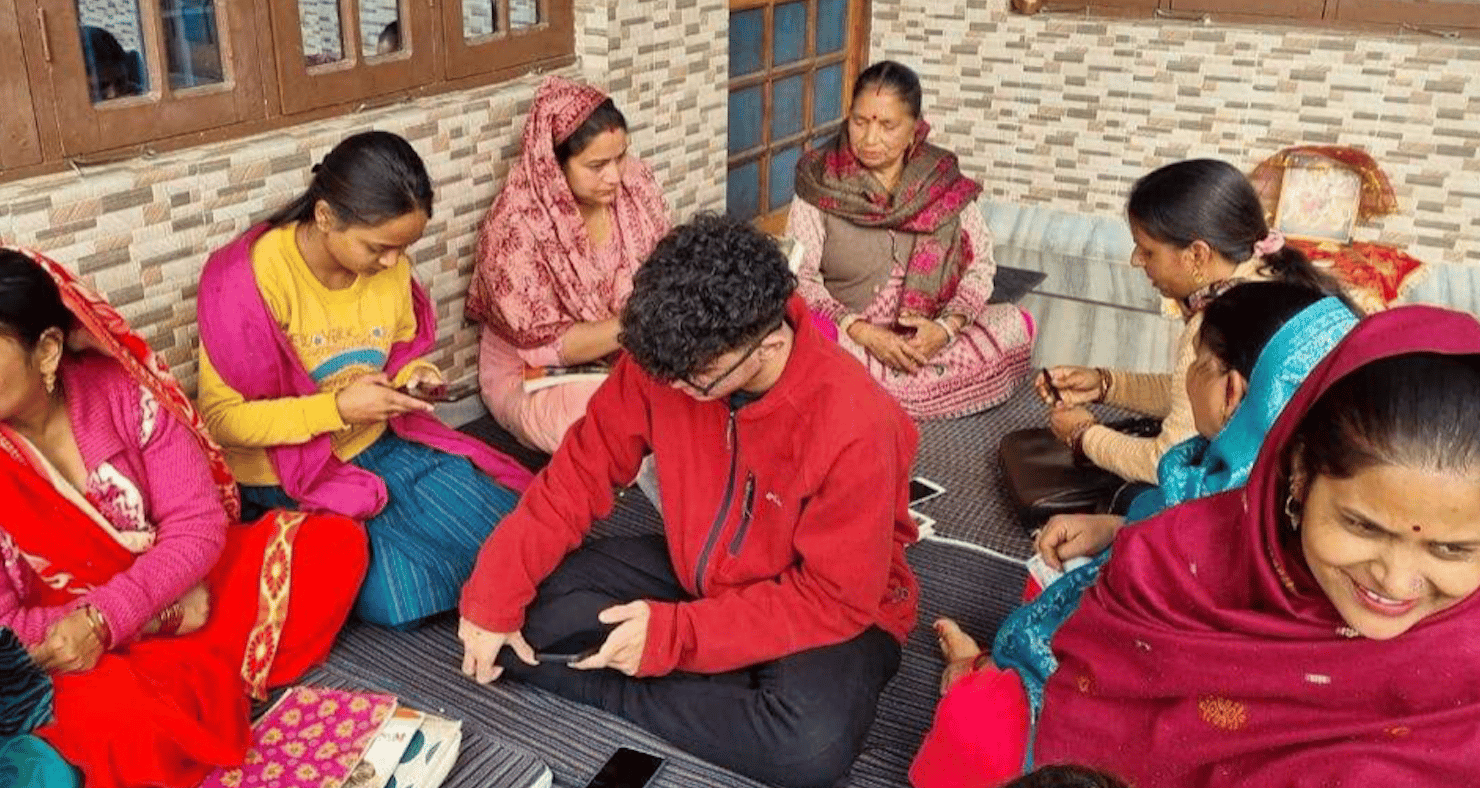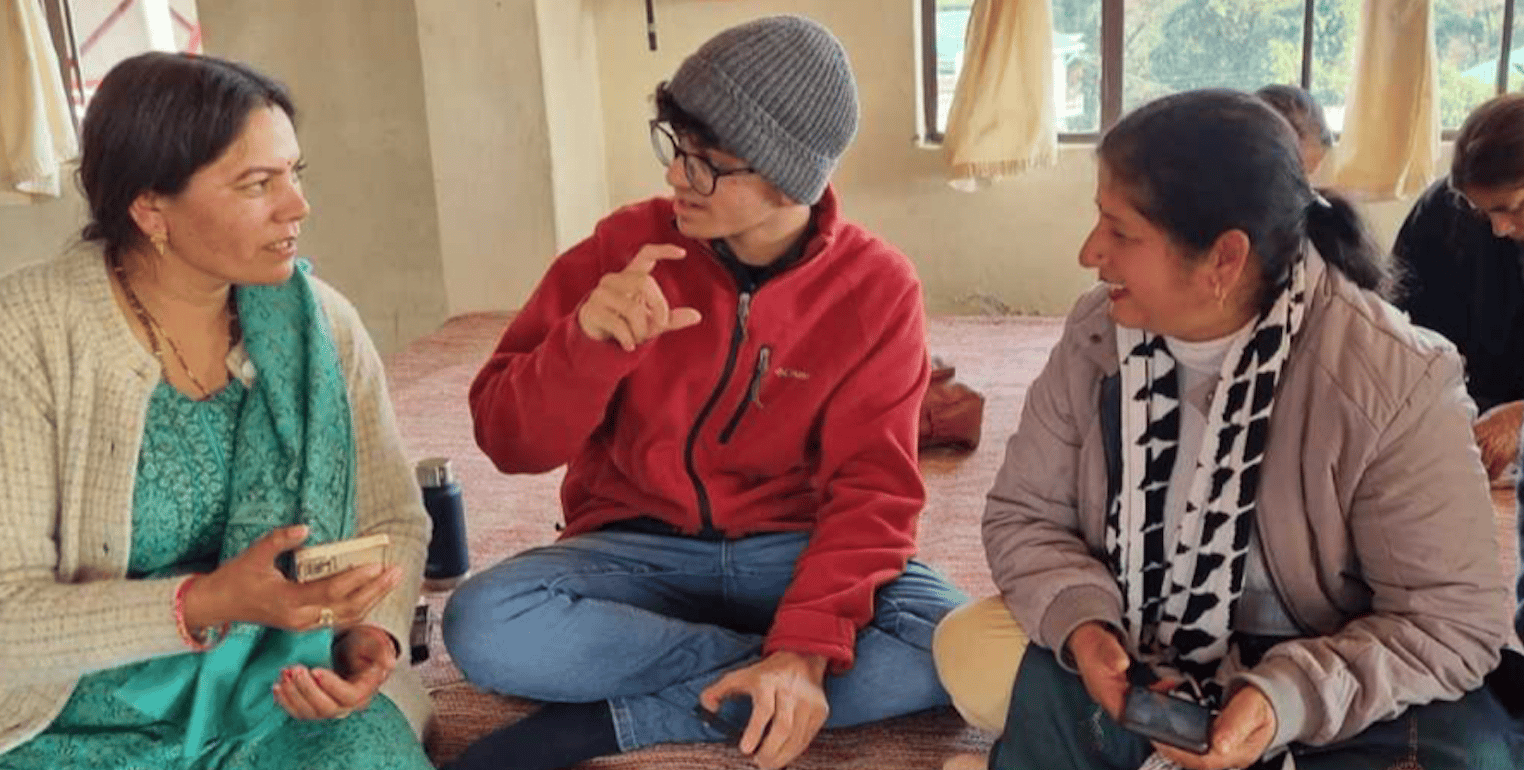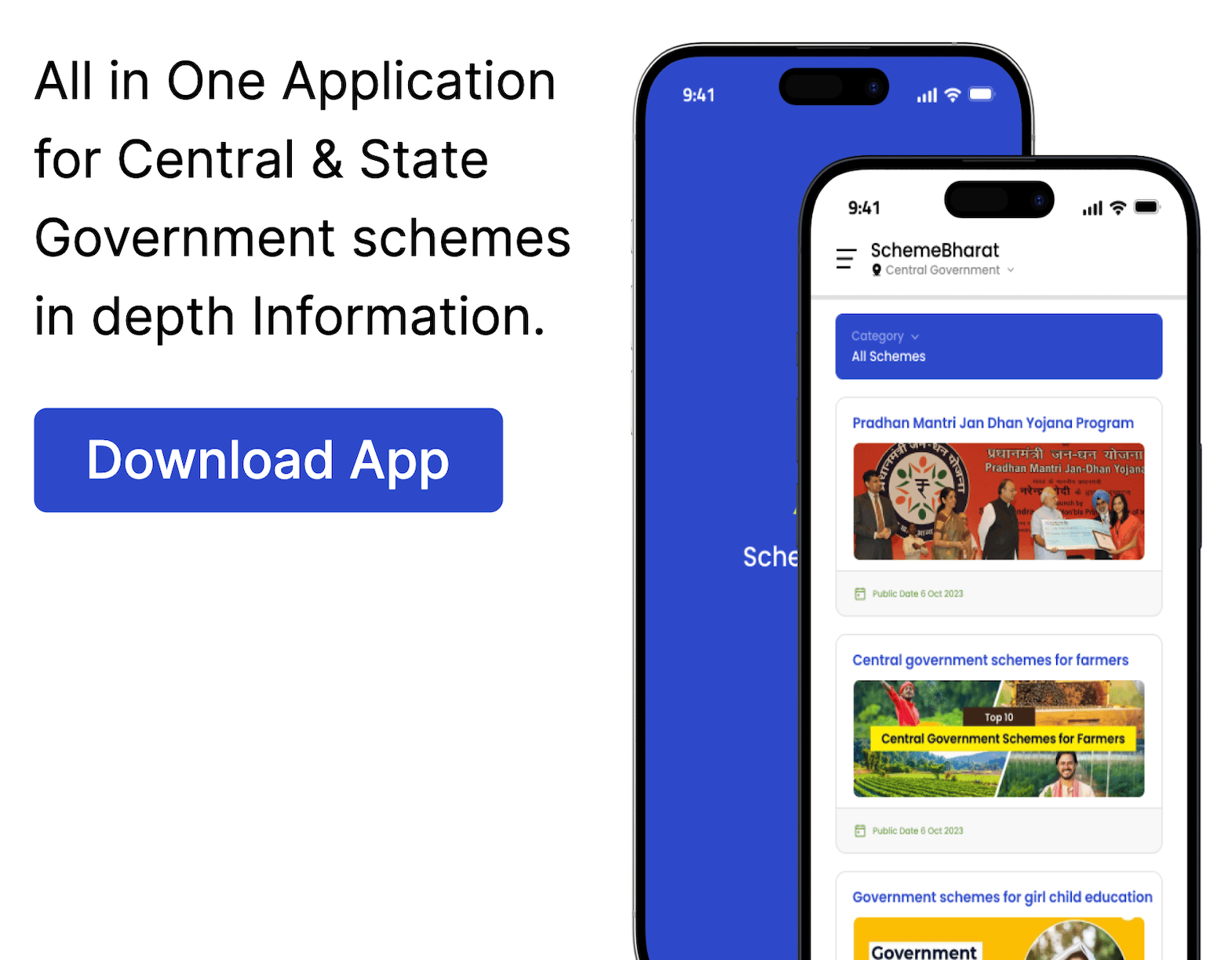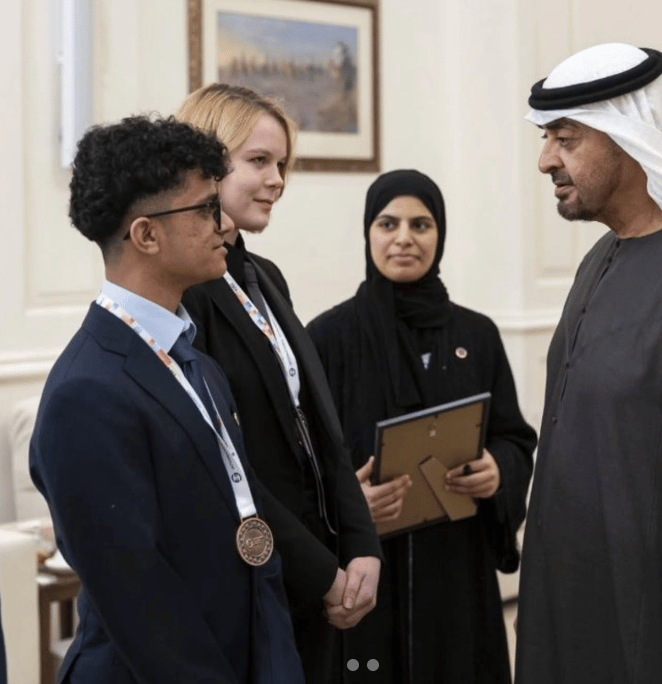- The Impact Journal
- Posts
- How This Dubai Student Made An App to Increase Access to Welfare Programs in India
How This Dubai Student Made An App to Increase Access to Welfare Programs in India
Neeraj Shah is an Economics and Mathematics student at Duke University who grew up in Dubai. During high school, he founded Scheme Bharat — a digital platform that simplifies India’s government welfare programs for communities who need them most.

Neeraj Shah - currently an Economics & Mathematics student at Duke University.
Neeraj Shah’s idea wasn’t born in a classroom or startup incubator—it started during a internship in the mountains of Himachal Pradesh. While interning at a microcredit firm, he noticed something simple yet powerful: people weren’t accessing life-changing government programs not because they didn’t qualify, but because they didn’t know they existed.
That observation sparked a mission. In high school, Neeraj began developing Scheme Bharat, an app and website designed to simplify government schemes for rural communities, showing citizens which programs they were eligible for, what documents they needed, and how to apply.
Balancing school in Dubai and partnerships across India, he built a team of NGO collaborators, learned app design from scratch, and refined his platform through constant feedback. By the time he graduated, SchemeBharat had grown beyond an idea, it became a bridge connecting people to opportunities that had always been theirs.
Here’s how he built it—and what he learned along the way.
If you’re a current high school student interested in starting your own initiative and standing out in university applications — you can sign up for a 30-minute extracurricular review. During the call, we'll:
a) Learn about your university goals
b) Review your extracurricular profile
c) Help you shape a unique project idea.
#1: What Inspired you to create SchemeBharat?
Neeraj: During grades 10 and 11, I was interning in Himachal Pradesh at a microcredit firm that worked closely with rural entrepreneurs. Many of the families I met lived on limited income, and when I asked about government support, most people simply shrugged—they either didn’t know what schemes existed or assumed they didn’t qualify. Seeing that disconnect between policy and people really struck me.

Since smartphones are now so common, I decided to build an app and website that would simplify this process, showing people which schemes they qualified for, what documents they needed, and how to get them.
Honestly, it was so rewarding to see people realize that a single app could connect them to opportunities they never knew they had.

#2: How did you transform SchemeBharat from an idea into a working app, especially while based in Dubai?
Neeraj: Growing up in Dubai really helped. It’s such a diverse and fast-paced place that you naturally learn to network and collaborate with people from all over. I started by partnering with the NGO where I’d interned in Himachal Pradesh, then reached out through school counselors and friends to connect with others in states like Maharashtra and Uttar Pradesh.
I started by partnering with the NGO where I’d interned in Himachal Pradesh, then reached out through school counselors and friends to connect with others in states like Maharashtra and Uttar Pradesh.
Those partnerships helped me localize the app, build regional content, and reach new communities.

The multicultural and fast-paced nature of Dubai allowed me to network extensively.
#3: What’s the most important lesson you’ve learned from leading SchemeBharat?
Neeraj: To stop and reflect. In any project, it’s easy to just keep working without checking if what you’re doing actually works for people. When I first tested the app in Himachal, I realized my Hindi wasn’t fluent enough to connect deeply with users.
So I brought an NGO representative to explain things better, which significantly increased downloads.
Reflection is crucial not just for founders but for any project.
#4: What motivates you to keep expanding SchemeBharat?

Neeraj: My model is completely free as it’s meant to act as a bridge, not a business. There’s so much potential to grow into areas like women’s empowerment and healthcare, because all these issues are connected.
For example, a women’s healthcare scheme doesn’t just help individuals; it impacts entire families and communities. There’s still a massive gap in awareness, and that’s what motivates me to keep building.
From the start, I wanted Scheme Bharat to be completely free and non-commercial. It functions as a third-party connector that helps citizens navigate policy rather than profit from it. That independence allows me to focus on what’s missing rather than what sells.
Recently, I’ve been particularly interested in how the platform can support women’s empowerment and healthcare accessibility.
These areas overlap naturally—women’s health initiatives influence family well-being, employment, and education. When one barrier falls, multiple others follow.
There’s still so much untapped potential. Government programs evolve constantly, and keeping citizens informed in real time could make a massive difference.
#5: How does Scheme Bharat align with Dubai’s focus on innovation and technology?
Neeraj: Dubai shaped how I think about technology and systems.
Growing up here, you see how technology simplifies everyday life—from transportation cards to digital government portals. That exposure made me realize that accessibility isn’t a luxury; it’s a mindset.

When I was designing Scheme Bharat, I kept asking: What would a Dubai-level user experience look like for rural India?
How do we make information so easy to access that people trust it instantly? That question guided everything from color choice to navigation flow.
Dubai’s transition into a smart-city economy also taught me about scalability. You can start small but still think in frameworks—designing something flexible enough to grow across regions, languages, and needs. I carry that lesson into every new iteration of Scheme Bharat.
#6: What role does Dubai play as a hub for youth-led innovation?
Neeraj: Dubai gives young people visibility.
When I participated in a business competition and our team was invited to meet His Highness, it was surreal but also deeply motivating—it proved that leadership here genuinely supports youth innovation

For students, the key is to reach out. Email government bodies, propose collaborations, involve teachers. The ecosystem is small enough that good ideas don’t get lost, but you have to take the first step. Dubai rewards initiative more than perfection.
The multicultural environment also builds confidence. You’re surrounded by peers who think globally, and that exposure makes you believe your ideas can travel beyond borders.
Scheme Bharat is proof of that mindset, it’s a solution shaped in an international city.
#7: What advice would you give high-school students applying to college?
Neeraj: The college process can feel overwhelming, but it’s really an exercise in self-discovery. When I was applying to U.S. universities, I approached it like a reflection rather than a checklist. What stories defined me? What issues did I care about deeply enough to spend years working on? Once I framed it that way, the essays started writing themselves.
I applied to nearly thirty schools, and yes—it was exhausting. Each essay had to be tailored, but those rewrites helped clarify my voice. My advice is simple: start early, be honest, and resist the temptation to write what you think admissions officers want to read. Authenticity stands out far more than polish.
Also, talk to people who’ve done it before. Ask about their experiences, not their scores. Everyone’s path looks different, and that’s the beauty of it. If you stay curious, keep creating, and build projects that mean something to you, the rest falls into place.
If you’re a current high school student interested in starting your own initiative and standing out in university applications — you can sign up for a 30-minute extracurricular review. During the call, we'll:
a) Learn about your university goals
b) Review your extracurricular profile
c) Help you shape a unique project idea.
Stay Connected
Connect with Neeraj: Linked-In